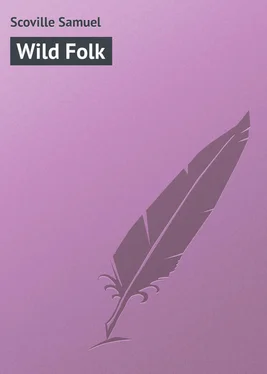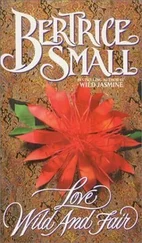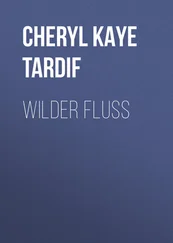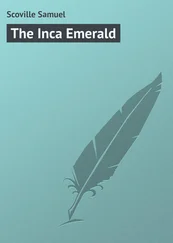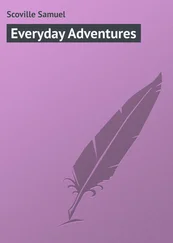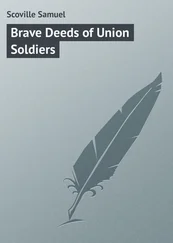Samuel Scoville - Wild Folk
Здесь есть возможность читать онлайн «Samuel Scoville - Wild Folk» — ознакомительный отрывок электронной книги совершенно бесплатно, а после прочтения отрывка купить полную версию. В некоторых случаях можно слушать аудио, скачать через торрент в формате fb2 и присутствует краткое содержание. Жанр: Природа и животные, foreign_prose, foreign_humor, Анекдоты, на английском языке. Описание произведения, (предисловие) а так же отзывы посетителей доступны на портале библиотеки ЛибКат.
- Название:Wild Folk
- Автор:
- Жанр:
- Год:неизвестен
- ISBN:нет данных
- Рейтинг книги:3 / 5. Голосов: 1
-
Избранное:Добавить в избранное
- Отзывы:
-
Ваша оценка:
- 60
- 1
- 2
- 3
- 4
- 5
Wild Folk: краткое содержание, описание и аннотация
Предлагаем к чтению аннотацию, описание, краткое содержание или предисловие (зависит от того, что написал сам автор книги «Wild Folk»). Если вы не нашли необходимую информацию о книге — напишите в комментариях, мы постараемся отыскать её.
Wild Folk — читать онлайн ознакомительный отрывок
Ниже представлен текст книги, разбитый по страницам. Система сохранения места последней прочитанной страницы, позволяет с удобством читать онлайн бесплатно книгу «Wild Folk», без необходимости каждый раз заново искать на чём Вы остановились. Поставьте закладку, и сможете в любой момент перейти на страницу, на которой закончили чтение.
Интервал:
Закладка:
Beyond the skunk-cabbage patch, on a limb of a shadbush, she discovered a gray cone somewhat larger than a Rugby football, made of many layers of pulpy wood-fibre paper. In and out of an opening in the smaller end buzzed sullenly a procession of great, flat-faced, black-and-white hornets. No insect is treated with more respect by the wild folk than the hornet. Horses, dogs, and even men, have been killed by enraged swarms. Unlike the single-action bee, whose barbed sting can be used but once, the hornet is a repeater. It can and will sting as early and as often as circumstances demand, and is most liberal in its estimate. Moreover, every sting is as painful as a bullet from a small-calibre revolver. Yet the bear approached the nest without any hesitation and, rearing up on her hind quarters, with one scoop of her paw brought the oval to the ground and was instantly enshrouded in a furious, buzzing, stinging cloud. Unmoved by their attacks, the imperturbable animal proceeded to gobble down both the nest and its contents, licking up grubs, half-grown hornets, and full-armed fighters alike, with her long flexible tongue, and swallowing great masses of the gray soft paper. When at last only a few scattered survivors were left, she lumbered off and followed a path which, like all bear-trails, led at last to one of the dry, pleasant, wind-swept hillsides that the bear-people love so well. There she spent a happy hour before a vast ant-hill erected by fierce red-and-black soldier ants. Sinking first one forepaw and then the other deep into the loose earth, she would draw them out covered with swarming, biting ants, which she carefully licked off, evidently relishing their stinging, sour taste.
Thereafter, filled full of berries, bulbs, skunk-cabbage, hornets, and ants, Mrs. Bear decided to call it a day, and curled herself up to sleep under the roots of a fallen pine.
Another day she discovered groves of oak trees loaded down with acorns. Better than any botanist she knew which were sweetest; and for a week she ate acorns from the white oaks, the tips of whose leaves are rounded, and the chestnut-oaks, whose leaves are serrated like those of the chestnut tree. Then came a morning when, from a far-away valley, floated a sound which sent her hurrying down from her tree, although it was only the bell-like note of the flappy-eared hound which belonged to Rashe Weeden, the trapper, who lived in the Hollow. Yet the bear knew that a hound meant a hunter, and that a hunter meant death. Only a straightaway run for miles and hours could save her, if the hound were on her trail. Weeks of feasting had left her in no condition for any such Marathon work.
Yet somewhere, during the hard-earned years of her long life, she had learned another answer to this attack of the trailing hound. Down the mountainside, straight toward the approaching dog she hurried, following a deeply marked path. It led directly under the overhanging branch of a great red oak. She followed it beyond the tree, and then doubled and, directly under the limb, circled and confused the trail. Then, still following her back track, she passed the tree and, returning to it by a long detour, climbed it from the farther side, and in a moment was hidden among the leaves. Nearer and nearer came the tuneful note of the hunting dog who had betrayed so many and many of the wood-folk to their death. Suddenly, as he caught the fresh scent, his voice went up half an octave, and he rushed along the faint path until he reached the red-oak tree. There he paused to puzzle out the tangled trail. As he sniffed back and forth under the overhanging limb, there was a tiny rustle in the leaves above him, hardly as loud as a squirrel would make. Then a black mass shot down like a pile-driver, a sheer twenty feet. The hound never knew what struck him, and it was not until an hour later that Rashe Weeden found his flattened carcass.
“Looked as if he’d been stepped on by one of them circus elephants,” he confided afterwards to old Fred Dean, who lived over on the Barrack, near him.
“Elephants be mighty scurce on Seven Mountains,” objected the old man; and the passing of that hound remains a mystery on the Barrack to this day.
One bitter gray afternoon, when the flaming leaves had died down to dull browns and ochres, word came to the wild folk that winter was on its way to Seven Mountains. Little flurries of stinging snow whirled through the air, and the wind shrieked across the marshland where the bear was still hunting for food. As the long grass of the tussocks streamed out like tow-colored hair, she shambled deep into the nearest wood, until behind the massed tree-trunks she was safe from the fierce fingers of the north wind, which howled like a wolf overhead. From that day she stopped the search for food and started house-hunting. Back and forth, up and down the mountains, in and out of the swamps, across the uplands and along the edges of the hills, she hurried for days at a time.
At last, on a dry slope, she found what she wanted. Deep in the withered grass showed a vast chestnut stump. Starting above this on the slope, in the very centre of a tangled thicket she dug a slanting tunnel. The entrance was narrow, like the neck of a jug, and was so small that it did not seem possible that the bear could ever push her huge shoulders through. When it reached the stump, however, it widened out into an oval chamber partly walled in by buttressed roots. Against the slope she dug a wide flat shelf, which she covered deep with dry leaves and soft grass, and sank beside the stump a small air-hole, which led into the lower end of the burrow. With the same skill with which she had picked and sorted berries, with her huge paws she removed every trace of the fresh earth displaced by her digging. Then she piled loose brush neatly around the entrance to the burrow, and crawled in. Turning around at the foot of the tunnel, she crept back head-first and, reaching out her paw, carefully corked the jug with the brush which she dragged deep over the opening. Then, six feet underground, on her dry warm bed, she curled up for a four months’ nap.
As the winter days set in, the driving snow drifted deep against the stump, until even the thicket above it was hidden. Then came the bitter cold. There were long days and nights when there was not a breath of wind, and the mercury went down below all readings in the settlements. In the forests and on the mountains great boulders burst apart, and in places the frozen ground split open in narrow cracks a hundred feet long. Life was a bitter, losing fight against cold and hunger for many of the wood-dwellers; but, six feet underground, the bear slept safe, at truce with both of these ancient foes of the wild folk, while the warm vapor of her breath, freezing, sealed the sides of her cell with solid ice. Not until spring unlocked the door, would she leave that little room again.
Yet, in January, although the door was still locked by the snow and barred by the ice, two tiny bearlings found their way in. They were blind and bare, and both of them could have been held at once on the palm of a man’s hand. Yet Mrs. Bear was convinced that there had never been such a beautiful and talented pair. She licked their pink little bodies and nursed them and cuddled them, and the long freezing months were all too short to show the full measure of her mother-love. As the weeks went by, they became bigger and bigger. When they were hungry, which was most of the time, they whimpered and nuzzled like little puppies, and pushed and hurried and crowded, lest they might starve to death before they could reach those fountains of warm milk which flowed so unfailingly for them. When they were both full-fed, Mother Bear would arch her vast bulk over them, and they would sleep through the long dreamy, happy hours, wrapped up warm in her soft fur.
Then, one day – the fortieth after their arrival – a great event occurred. Both the cubs opened their eyes. There was not much to see, but the old bear licked them ecstatically, much impressed by this new proof of their genius. From that time on, they grew apace, and every day waxed stronger and friskier. Sometimes they would stand up and box like flyweight champions, and clinch and wrestle and tumble around and over the old bear, until she would sweep them both off their feet with one turn of her great paw, and they would all cuddle down together for a long nap.
Читать дальшеИнтервал:
Закладка:
Похожие книги на «Wild Folk»
Представляем Вашему вниманию похожие книги на «Wild Folk» списком для выбора. Мы отобрали схожую по названию и смыслу литературу в надежде предоставить читателям больше вариантов отыскать новые, интересные, ещё непрочитанные произведения.
Обсуждение, отзывы о книге «Wild Folk» и просто собственные мнения читателей. Оставьте ваши комментарии, напишите, что Вы думаете о произведении, его смысле или главных героях. Укажите что конкретно понравилось, а что нет, и почему Вы так считаете.
